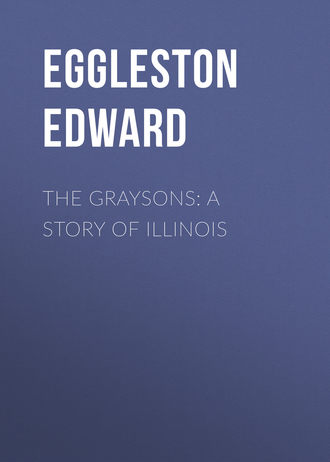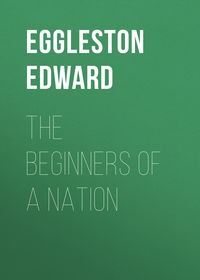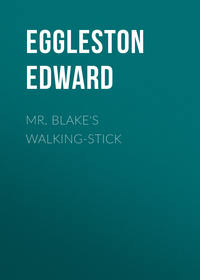
The Graysons: A Story of Illinois
Henry showed her where they could put their house, where the barn would be placed, and where they would have a garden. Rachel felt a certain pleasure in fancying herself the mistress of such a place. But it was contrary to all the precedents laid down in the few romances she had read for a woman to marry a man who was not her "slave"; that was the word the old romancers took delight in. She tried to coquet with Henry, in order to draw from him some sort of professions of love. A flirtation with a lay figure would have been quite as successful. He was plain prose, and she presently saw that if she accepted him it must be done in prose. She couldn't help liking his very prose; she was a little tired of slaves; it seemed, on the whole, better to have a man at least capable of being master of himself.
In much the same tone – the tone of a man buying, or selling, or proposing a co-partnership for business purposes – Henry Miller carried on the conversation all the way back until they reached the corn-crib, where he came to a stand-still.
"Whaddy yeh say, Rachel? Is it a bargain?"
"Well, Henry, it's sudden like. I want to take time to think it over."
"Then I'll take back the offer and put out for the Ioway country. I'm not a-going to have my skelp a-hanging to your belt for days and days, like the rest of them. What's the use of thinking? You don't want to take Magill, do you?"
"He's too old, and his nose is rather red," laughed Rachel.
"Nor Tom Grayson, I suppose?" Henry mentioned Tom as the second because he was the one about whom he had misgivings.
"I give him the sack before the shooting, and I'm not going to go back to him now."
Rachel faltered a little in this reply, but she spoke with that resolute insincerity for which women hold an indulgence in advance when their hearts are being searched.
"Well," said Henry, "if you think you can do better by waiting, I m off. If you think I'm about as good a man as you're likely to pick up, here's your chance. It's going, going, gone with me. Either I marry you and take father's offer, or I put out for the Ioway country. I don't ask you to think I'm perfection, but just to take a sober, common-sense look at things."
Rachel saw that it was of no use to expect Henry to court her, and she could not help liking him the better for his honest straightforwardness. She looked down a minute, in the hope that he would say something that might make it easier for her to answer, but he kept his silence.
"Henry," she said at length, rolling a corn-cob over and over under the toe of her shoe, "I've got a good mind to say 'Yes.' You don't make me sick, like the rest of them. Father'll be struck when he hears of it. He's always said I'd marry some good-for-nothing town-fellow."
"Is it a bargain, good and fast?" said Henry, holding out his hand, as he would have done to clinch the buying of a piece of timber land or a sorrel horse.
"Yes," said Rachel, laughing at the oddness of it and the suddenness of it, "I'm tired of fooling. It's a bargain, Henry."
"Good fer you, Rache! Now I begin to like you better than ever."
1
Why it was that Bob said "bears," and did not say "b'ars," as some of his class did, I do not know. Broad as his dialect was, it was perceptibly less aberrant than that of Lazar Brown's family, for example. It is impossible to trace the causes for local and family variations of speech; nor is a word always pronounced in the same way in a dialect, – it varies in sound sometimes, when more or less stress is put upon it. The varieties are here set down as they existed, except that print can never give those shades of pronunciation and inflection that constitute so large a part of the peculiarities of speech, local, personal and temporary.




